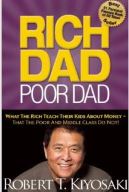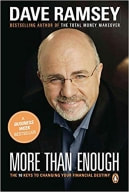If you want to take control of your financial destiny, you really need to know the difference between assets and liabilities. People often get confused when they start classifying what they currently own into assets and liabilities. To many people, houses and cars are considered assets. Furthermore, houses and cars are recorded under the assets column of the balance sheet in accounting practices. But are they really assets in the true sense? Yet, the answer can be both a Yes and a No!
The Oxford Dictionary define an asset and a liability as follow:
Asset - a thing of value, especially property, that a person or company owns, which can be used or sold to pay debts. Liability - a person or thing that causes you a lot of problems or the amount of money that a person or company owes. While the above definitions are clear enough to be understood, they are not so clear when applied in real life. The definitions alone may not present a complete picture when put through the lens of wealth builders. In the context of building wealth, I would prefer the following definitions of an asset and a liability instead: Asset - something that puts money into your pocket. Liability - something that takes money out of your pocket. The above definitions of assets and liabilities would help people see things from a different perspective. It becomes easier for anyone to classify what they own into real assets and liabilities. Hence, the house that you live in is a liability because it doesn't fetch you income. Even if your residential property appreciates in value over the years, the capital gain would remain as "paper profit" unless you realized it by selling the house. However, this same house becomes an asset if you rent out a room for rental income, thus putting money into your pocket. Similarly, the car that you bought for your personal use is considered a liability since money will have to come out of your pocket to maintain the vehicle. But if used to produce income, the same car can then be classified as an asset because money would be flowing into your pocket. Other "assets" such as branded watches, bags, gadgets, furniture, and other luxuries for personal use are really liabilities, though accountants would have them classified as assets in the balance sheet. This is because these things take money out of your pocket when you buy them. Furthermore, most of these items would depreciate in value over time, thus taking additional money out of your pocket should you sell them! Is the picture much clearer now? Now that you know the difference between assets and liabilities, set your sight on the ultimate goal of achieving financial freedom by accumulating income-generating assets and minimizing your spending on liabilities. Also Read: Are You Tempted by the World? The Real Meaning of Financial Freedom Three Steps to Secure Your Financial Future Recommended Books:
0 Comments
Your comment will be posted after it is approved.
Leave a Reply. |
|







